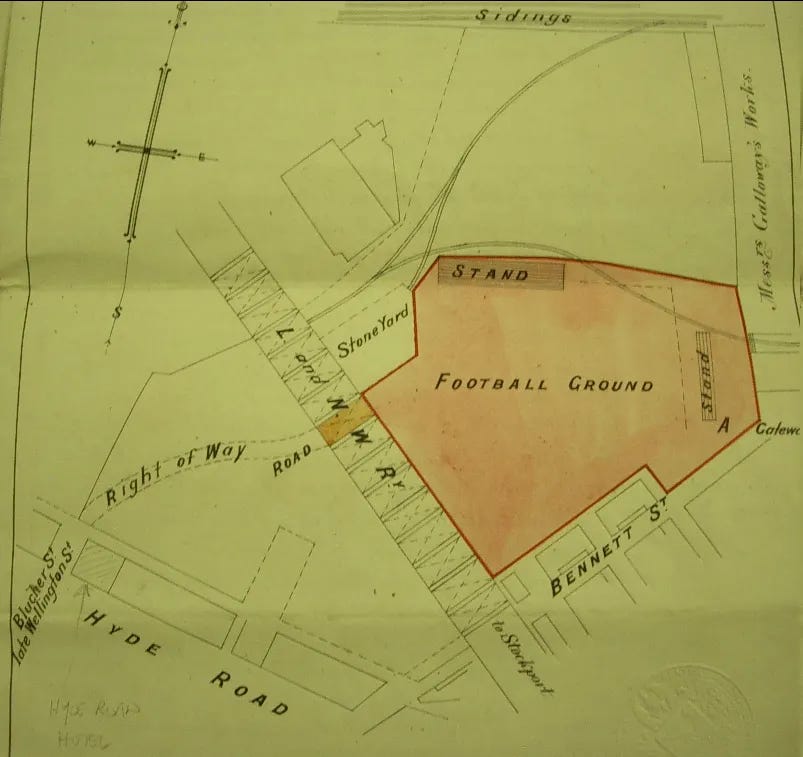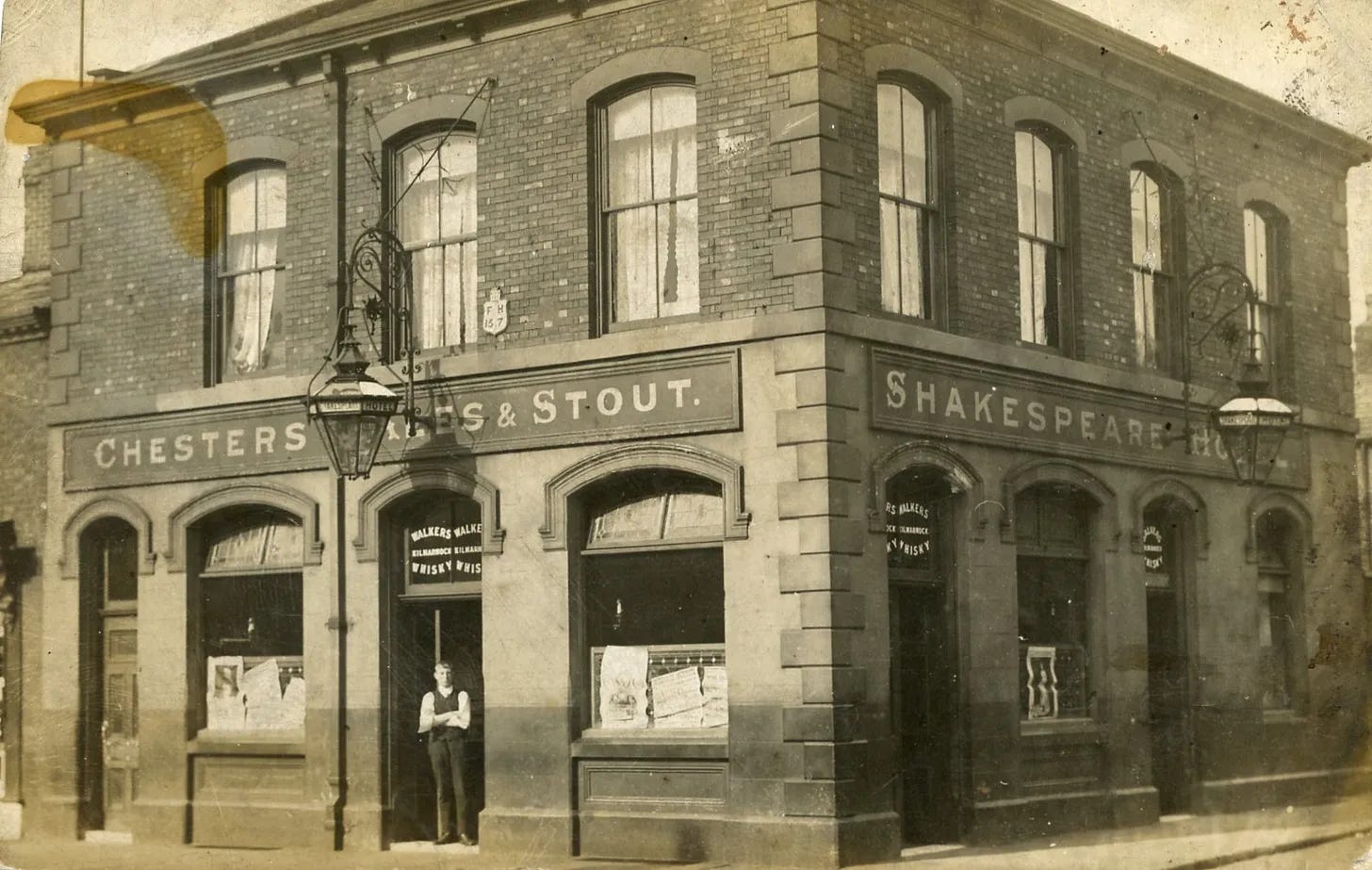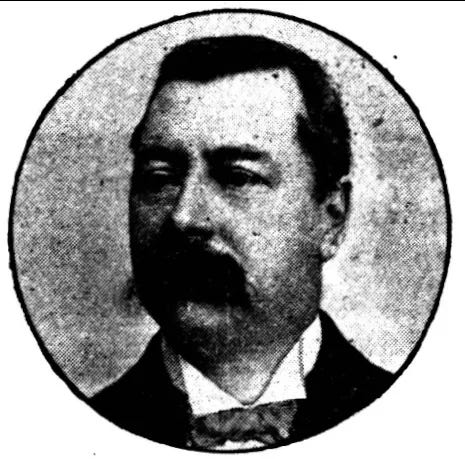The Birth of Football and the Origins of Manchester City
Twenty-three: The Battle For Ardwick
On 4 December 1893 the Athletic News reported:
‘The Ardwick Club are going from bad to worse, and the old and present members of the committee have to face an application from Chesters Brewery Co. for the payment of the sum of £1,600. We are not well versed in the law, but should imagine that Chesters Brewery Co. have as much chance of recovering the amount as say Darwen have of winning this year’s League Championship. Added to this is a debt of £500, so that it may be imagined that the prospects of the Ardwick Club are anything but bright.’
Ardwick’s prospects were indeed dire. Gates receipts were only averaging around £46 per game at this point, with expenses running at around £37 per game. And because Ardwick was a members club, every committee member from 1890 onwards was now liable for their share of the debt.
A month earlier, a new club committee had been elected at a meeting at the Hyde Road Hotel. They were: Samuel Holden, Alexander Strachan, John Prowse, Robert Hayes, W Ashworth and a man just recorded as ‘Coates’.
On 7 December, after appointing Holden as chairman and Hayes secretary, the committee began its desperate bit to raise funds. Key players Hugh Morris, Joe Davies and Jimmy Yates were sold to Sheffield United, while three fundraising concerts were organised at the Co-operative Hall in Ardwick.
Three days later The Umpire reported:
‘The Ardwick club still continues to do business at the old stand, and the committee are making a desperate effort to keep the shutters down. Part of the stock has been parted with and a price has been put upon the rest, so that in a short time there will be nothing left but the fixtures. These will be kept, we believe, and an attempt made to work them by a team of amateurs.’
On 15 December the club were dealt a further blow after the MSL Railway took over the deed for the passageway from Hyde Road Hotel to the ground from Chesters Thompson and announced its intention to close it.

The club responded by selling a further five players, including popular goalkeeper William Douglas, who was signed by Newton Heath, and full-back David Robson, who moved to Wolves.
By January the wage bill had been slashed from £34 a week to just £10. But with the playing squad now ‘seriously weak’, results worsened. In February Ardwick were knocked out in the first round of the Manchester Cup after losing 6-3 at home to Bury, while the slide towards the Second Divison’s re-election zone continued.
But a few hundred yards from Hyde Road, alternative plans for the club’s future were being drawn up.
In March, Holden, Hayes, Strachan and Prowse all resigned from the club’s committee. They had joined forces with pub landlord John Chapman, who had been involved with the club since 1889. That month they attended a meeting at Chapman’s Shakspere Hotel on Stockport Road (pictured below after its spelling had been changed)..
Also present were Alfred Jones, Robert Heath, Frederick Skinner, Charles M'Laughlin and Edwin Hodson. The men were already well acquainted. Holden was a member of the pub’s bowling and angling committee, as were Heath, M’Laughlin and Hodson.
At the meeting it was decided to form a limited liability company to take over the running of the club. Chapman would be chairman, and Hayes secretary. Afterwards they approached the FA, and at the second meeting chose the name ‘Manchester City’.
The Ardwick committee was now led by John Allison and Lawrence Furniss. They also planned to form a limited liability company, but one that would run the club on amateur lines.
On 4 April an application by Chapman’s group for affiliation to the Lancashire FA under the name Manchester City was rejected after the Ardwick committee officially opposed it. But the Lancashire FA informed them it would be accepted if they secured a ground.
The battle lines were now drawn, and the key to victory was control of the Hyde Road ground, which had been rented on a short-term lease since 1887. As there was no available land in Ardwick, and finding a ground elsewhere and developing it was not a viable option for either party, whichever faction secured the lease would take control of the club. The other would perish.
A few days later Chesters Brewery took over the Hyde Road lease after it had expired. The club’s future now lay in the hands of the brewery’s manager, William Cahill.
My book on City’s origins, A Man’s Game, is available on Amazon here.
What was the first song at City? Why did Steve Coppell resign? Did City have a “Fifth Column”? Did the IRA try to burn down Hyde Road? Who started the “banana craze”? And what was Maine Road's Scoreboard End called before there was a scoreboard?
All these questions—and more—are answered in my latest book, available on Amazon here.
You can subscribe for free, below, and have the latest stories sent straight to your inbox.





